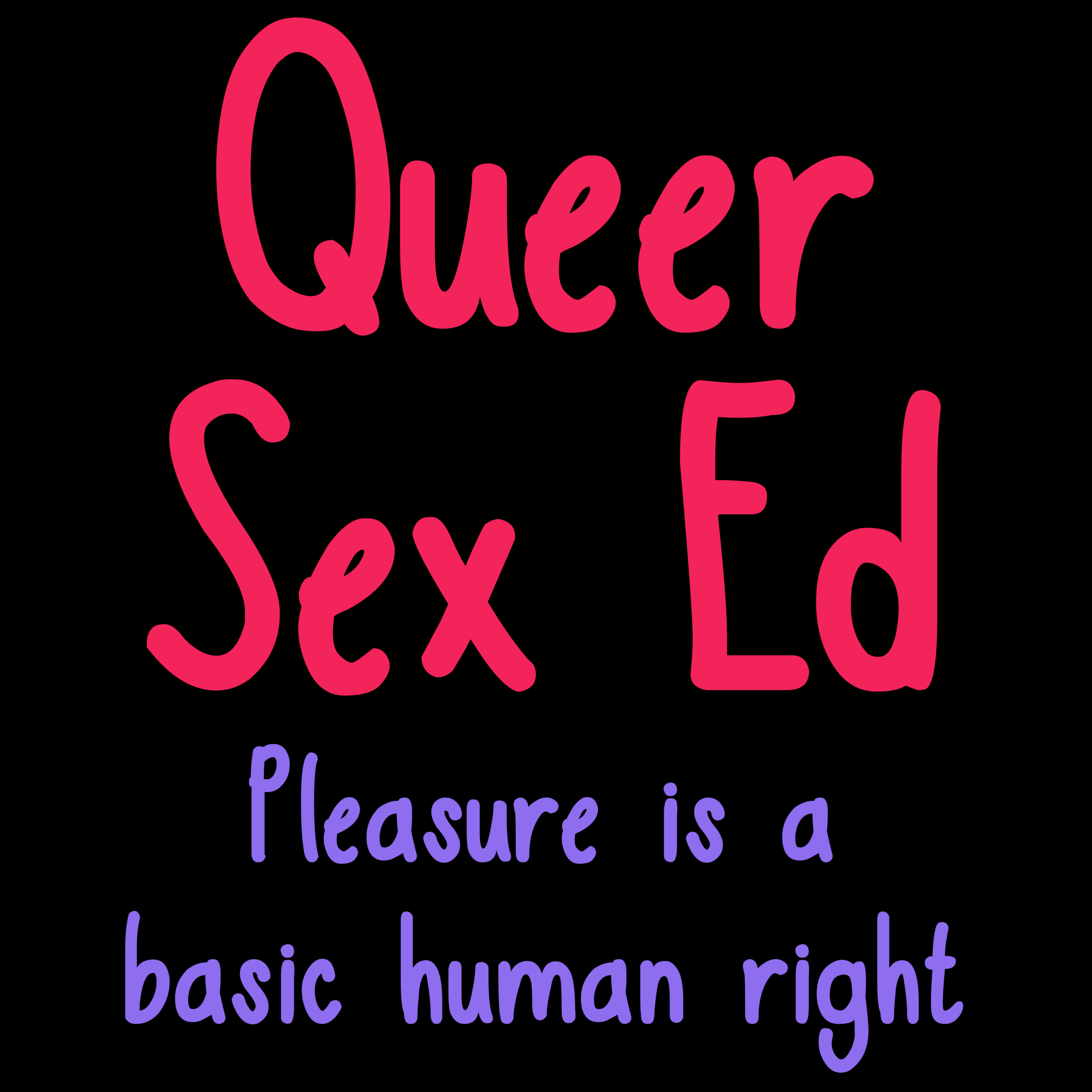Why Queer Sex Ed?
Queer Sex Ed is an imperative statement. When we call to "Queer" Sex Ed, it is a call-to-arms for sexual health educators, schools, parents, and people in all types of relationships to intentionally "queer" the institutions of sexual communication, sexual health, interpersonal relationships, and relationship structure.
We believe that we must turn sex ed on its head. Even when sex ed is at its best, it is often (intentionally or unintentionally) exclusionary of lesbian, gay, bisexual, transgender, gender queer, gender fluid, and agender people, polyamorous people, asexual people, people with disabilities, and so many more social groups who engage in just as many relationships as straight, cisgender, monogamous people, but are forced to do so through uncharted waters, lack of media representation, and massive social stigma.
We must also realize that some current, mainstream sexual health information is intentionally misleading, shame inducing, and coercive at its worst. This will never be a solution to teenage pregnancy, sexually transmitted infections, abortion, sex before marriage, or any other negative outcomes of sexual activity. The only way to address these problems is to empower people to make decisions about their sexual health and give them access to the tools to protect themselves and their partners. This is true for people who have 50 sexual partners in a year and for people who only wish to have sex with one person in their whole life. Neither of these choices is right or wrong, just different.
This project is not intended to be a medical, comprehensive, or professional resource for sexual health.
If you need more information about sexual health, especially if you are under 18, please visit www.scarleteen.com. This website, the podcast, and all related content are for and include adults 18 and older.
For more information on relationships of all kinds, please read S. Bear Bergman's column on Bitch Media (at www.bitchmedia.org/profile/s-bear-bergman) and support his work teaching sex positive, trans positive, body positive sexual health work.
If you are over 18, please support the body-positive, trans-positive work of Tobi Hill-Meyer (at www.patreon.com/DoingItOnline)
The goal of this project is to share the stories of myself and others in sexual health, sex positivity, and everyday queer sexual life to normalize authentic conversations about sex, pleasure, boundaries, health, and communication. You can contact us at queersexed@gmail.com with any statements to help us grow our perspective, better support all people, and uplift marginalized voices, please reach out and share your thoughts.
My name is Sara and I have been a sexual health and LGBTQ educator for 8 years. I began as a freshman in college with our Community Health department, then as a full-time professional for a year after graduation. In my professional life, as I conduct workplace and school workshops about LGBTQ communities and allyship for businesses, non-profits, and conferences. I am a queer, sex-positive, non-monogamous woman.
I have seen countless times in my personal and professional life how a lack of open, honest communication about sex, relationships, power, sexual violence, and gendered expectations hurt people I love and their partners. I feel that the lessons I've learned and people I've met in non-monogamous, sex positive communities can help all people develop tools to better navigate relationships, pleasure, body positivity, and authentic desire, even for people who are monogamous, non-kinky, straight, and married.
I believe that open conversations about desire, the ability to hear rejection, and autonomy in all relationships can help build a world that is based on mutual support and authentic desire instead of assumptions, projections, and resentment over unfulfilled (and unvoiced) needs.
So many of us are afraid to ask for what we want, or even explore what we might want in the first place, because we live in a culture where sexual pleasure and communication are taboo, scary, and so often, something we never learn about in high school, college, or adulthood. I want to change that by normalizing conversations about sex and relationships with space for mistakes, learning, growth, and fearless communication. Would you like to grow with me?
"I think of lovers as trees,
Growing
To and from one another
Searching for the same light"
- Warsan Shire
